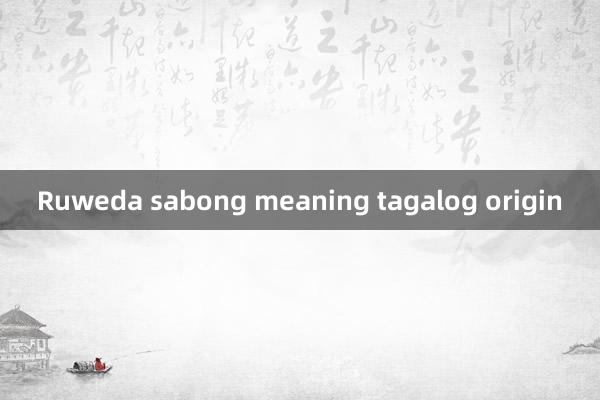
Ruweda Sabong Meaning and Its Tagalog Origin
The Philippines is rich in cultural traditions that are deeply rooted in history. One such tradition is "sabong," or cockfighting, which has been part of Filipino culture for centuries. When discussing this activity, the term "ruweda sabong" often comes up. To fully understand its meaning and significance, we must delve into both the concept of sabong and the specific Tagalog origin of "ruweda."
What Is Sabong?
Sabong, or cockfighting, is a traditional sport in the Philippines that dates back to before Spanish colonization. The sport involves two gamecocks (roosters) fighting each other in an arena, with people placing bets on which bird will emerge victorious. While controversial, sabong is deeply ingrained in Filipino culture and continues to be practiced widely today.
In the context of sabong, "ruweda" refers to a specific part of the cockfighting event, but to fully understand its importance, it’s crucial to explore the broader history and cultural context of cockfighting in the Philippines.
The Importance of Sabong in Filipino Culture
Sabong is more than just a pastime or sport; for many Filipinos, it is a social gathering, an expression of local customs, and even a source of livelihood. Cockfighting events are often tied to fiestas, which are community-wide celebrations honoring patron saints or other significant events. These fights draw large crowds and are not limited to just those who place bets. Many spectators come to enjoy the event and participate in the excitement of the match.
Historically, sabong has served as a means of bringing communities together. It’s a tradition passed down through generations, embodying the spirit of competition and camaraderie. Though it has faced criticism due to the nature of the sport, it remains a vital part of the Filipino identity, particularly in rural areas.
What Does "Ruweda Sabong" Mean?
The term "ruweda" refers to the cockfighting arena, the ring where the gamecocks fight. It comes from the Spanish word "rueda, sem phim séc việt nam mới nhất" meaning "wheel" or "circle, PHJL" which reflects the circular shape of the arena where the action takes place. Over time,naruto hemtai the term has been absorbed into Tagalog and other Filipino dialects, becoming a regular part of the vocabulary used in sabong.
In practice, "ruweda" is used to describe the central area where the roosters are pitted against each other, surrounded by a crowd of onlookers. The "ruweda" is where all eyes are focused during the fight, making it a crucial part of the entire cockfighting experience. The excitement, the bets, and the outcome of the fight all revolve around what happens within the confines of the ruweda.
đăng ký đăng nhập slot go88Tagalog Influence and Spanish Roots
Like many aspects of Filipino culture, the term "ruweda" illustrates the blending of indigenous traditions with colonial influences. The Spanish ruled the Philippines for more than 300 years, leaving a lasting mark on the language, customs, and traditions of the Filipino people. Many words in Tagalog, the national language of the Philippines, are derived from Spanish, including "ruweda."
In Tagalog, words of Spanish origin have been adapted to fit the linguistic structure of the local language, sometimes with slight changes in spelling or pronunciation. "Ruweda" is one such example, seamlessly integrated into Tagalog and becoming an essential term in sabong culture.
Modern Significance of Ruweda Sabong
While the essence of sabong has remained largely unchanged for centuries, modern technology has added new dimensions to the sport. For instance, online sabong platforms now exist, allowing enthusiasts to watch cockfights and place bets remotely. However, whether in a physical arena or on a digital platform, the concept of the "ruweda" remains the same. It is still the central space where the fight takes place, and it continues to be the heart of any cockfighting event.
Even with changing times, "ruweda sabong" retains its cultural significance. The language of the sport, including terms like "ruweda," connects modern-day practitioners to the long history of sabong in the Philippines. For many, it’s a symbol of continuity, a way of preserving a centuries-old tradition that remains relevant today.
Conclusion
"Ruweda sabong" is a term steeped in history and cultural significance. "Sabong," the traditional sport of cockfighting, has long been a part of Filipino life, bringing communities together in both celebration and competition. The term "ruweda," with its Spanish origins, reflects the Philippines' colonial past while being fully embraced as part of the local language.
For those unfamiliar with sabong, understanding the meaning of "ruweda sabong" offers insight into a cultural practice that has shaped social dynamics in the Philippines for centuries. Despite modern adaptations, the essence of this tradition, as embodied in the term "ruweda," continues to hold importance for Filipinos today, linking the past with the present in a dynamic and evolving way.
63win registerwww.hongkong-tour.com




